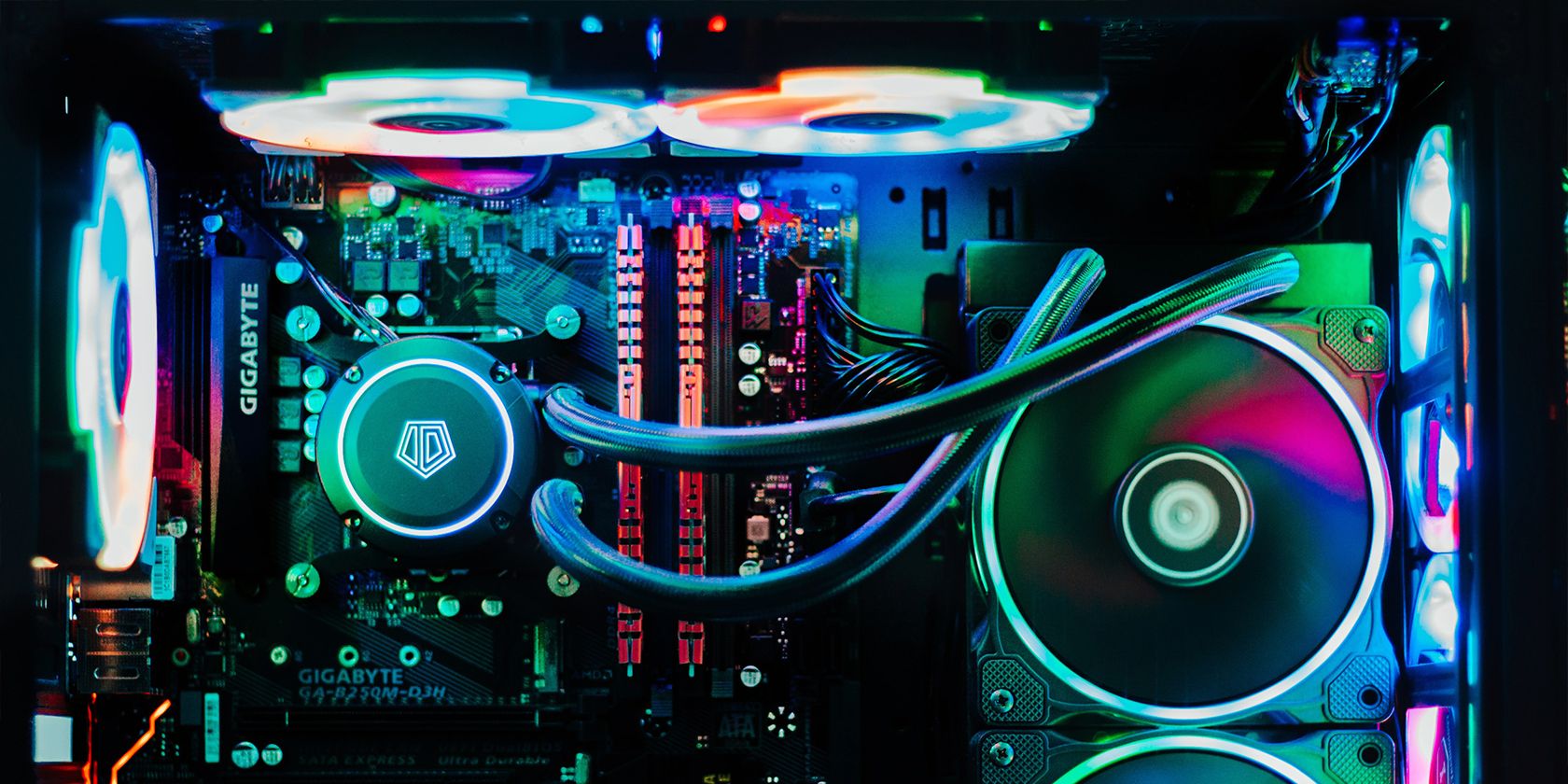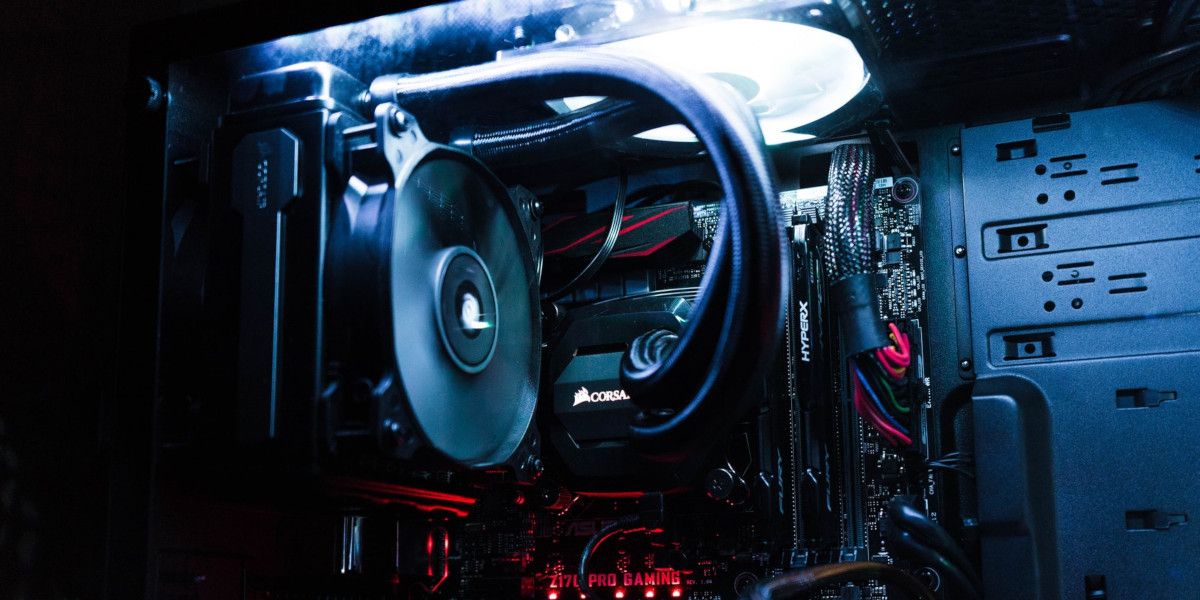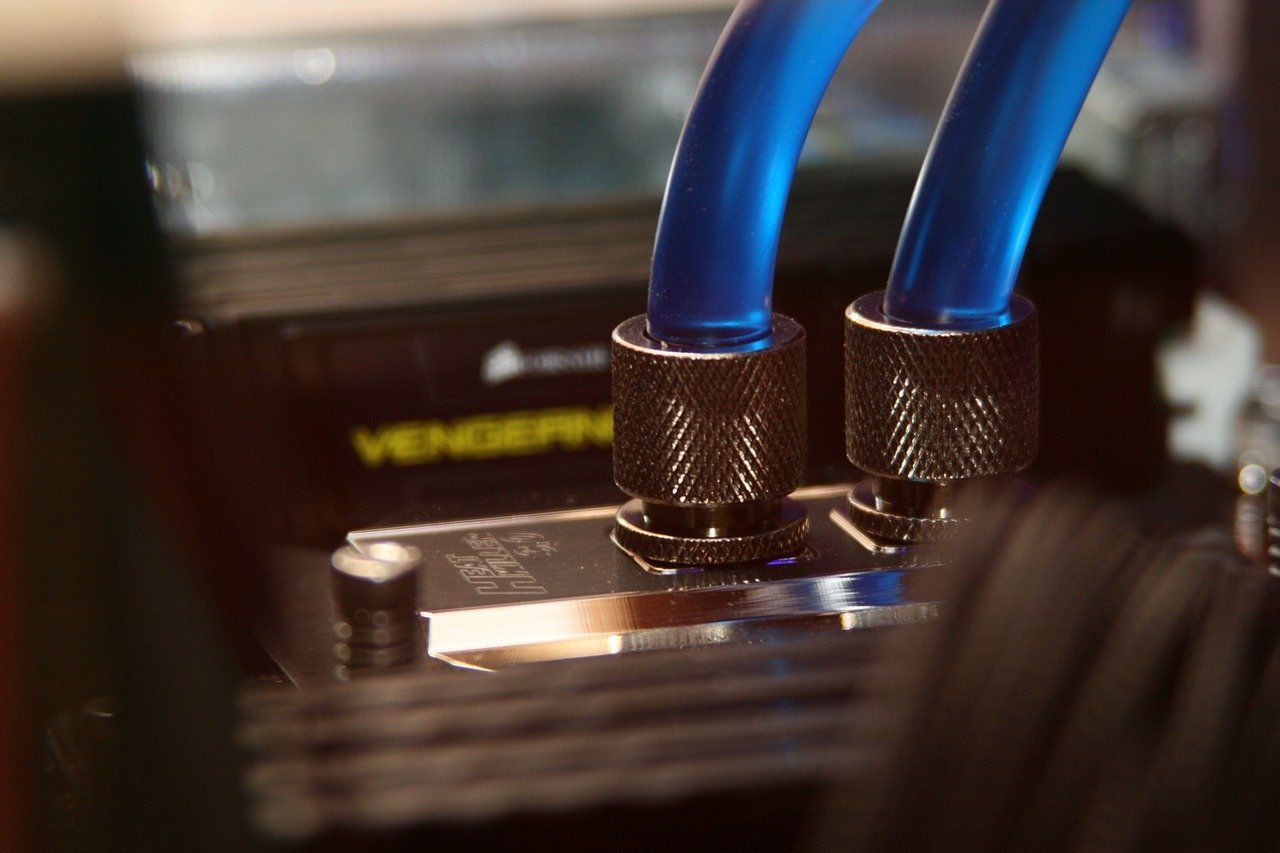The beautiful thing about building a gaming PC is that you can choose what parts go in it and fine-tweak it to your specific needs. Once you go over a certain performance point, though, some things become a necessity, and water cooling is one of them!
The best part? While in the past, you probably heard that water cooling is an expensive, ultra-enthusiast affair (and still is in some scenarios), there's an easy and quite affordable way to get into it: an AIO cooler. But what is it exactly, and should you use one?
What Is an AIO Water Cooler?
AIO stands for "all-in-one," and in the case of AIO water coolers, that's a pretty good summary of how they work. AIO water coolers are a simplified water cooling kit meant to be an install-and-forget thermal solution, similar to air coolers.
They have the same basic working principle as ultra-expensive custom water cooling kits. There's a radiator that's meant to be attached to the top or front of your computer's case, fans meant to dissipate heat from that radiator, a copper/metal block installed on top of your CPU socket, and, of course, coolant liquid flowing around the cooler, helped by a pump.
However, unlike those kits, a few things are simplified. There's typically no reservoir for coolant, and there's also no need to plan, and work on, piping in the case, as the cooler comes with soft, sleeved tubing going straight from the radiator to the CPU block and vice versa. That tubing is also factory sealed and pre-filled, meaning that you're not meant to put in your own coolant, and likewise, there's next to no chance of a coolant leak unless it gets physically damaged.
They also have a price advantage. While a custom water cooling loop can set you back several hundred bucks, a reliable AIO water cooler can set you back anywhere between $70 to $200, depending on whether you want more premium materials or a bigger radiator.
Are AIO Coolers Better Than Custom Water Cooling Loops?
Surely, then, with both price and performance advantages, AIO water coolers must be better than custom water cooling loops in everything? And the answer to that is, that while AIO coolers are great for almost everyone, custom, old-school kits still have their place.
AIO coolers can be used by almost all computers, but some specific set-ups, particularly ultra-expensive ones, might still require a custom kit. After all, a well-planned loop can still give you better thermals than an older PC. While AIOs are also limited to just your CPU (there are some AIO GPUs too, but they're not the norm), custom loops can also cool your GPU, RAM, or even power supply if you really want to.
They also have the advantage in terms of looks. You can make it look just the way you want it to, whether you want to use soft or hard tubing, and that can make your PC look great. AIOs can also look good, but in terms of a rough comparison, custom water loops are almost always going to have the upper hand.
That being said, they're also way harder to install and, as we mentioned before, more expensive. So, in most cases, you'll probably prefer an AIO.
Are AIO Coolers Better Than Air Coolers?
In most cases, they are, yes.
As a principle, coolant liquid is almost certainly going to do a better job than air at keeping things running cool. Liquid can help a lot in transferring heat away from the CPU. Think of it like how jumping into a pool or taking a cold shower will cool you down way faster than standing in front of a fan would. And if you can fit one in your PC, your CPU will live a much cooler life than with most air coolers.
That being said, air coolers still have the price and simplicity advantage. They're much easier to mount, as you don't need to lug around and attach a radiator to your computer. They're also considerably more affordable, coming in at roughly half or even a fraction of an AIO's price. And many will still do a pretty good job at cooling your CPU adequately, especially tower-style ones from manufacturers like Noctua. Unless you go over a certain price point or try to overclock your chip, those shouldn't break a sweat at all.
However, when comparing things in terms of performance, without taking other factors into account, AIOs win in most scenarios. This brings us to our next point.
Should You Use an AIO Cooler in Your PC?
If you can afford it, then, by all means, you should.
AIO coolers have multiple advantages over both custom liquid cooling loops and air coolers. The mounting process is definitely more complicated than for a standard air cooler, yet infinitely simpler than taking the time to put together a custom loop. And while it's not as effective as a custom loop, it's almost as good in terms of thermals for the vast majority of PCs. Plus, it'll also deliver objectively better performance than most air coolers, giving you an option to cool high-end computers without necessarily having to spend a lot. It'll also look better if you're into that.
The "if you can afford it" part is important. While you can get AIO coolers for as low as $70, you might be looking at somewhere in the range of $100-$200 for a good 240mm or 360mm unit. They're more affordable than ever, though, making them more tempting than ever. But if your specific PC can do okay with an air cooler or even a stock cooler, it might be worth putting that money on other parts, like better RAM or storage.
They're Neat, But Not Everyone Needs One
Not everyone needs an AIO cooler. Most computers will be served fine by a tower air cooler—most of them will give you vast thermal headroom for even some high-end chips. However, once you reach a certain TDP or are planning to overclock, water cooling becomes necessary—and that's where AIOs come in.




.jpg)